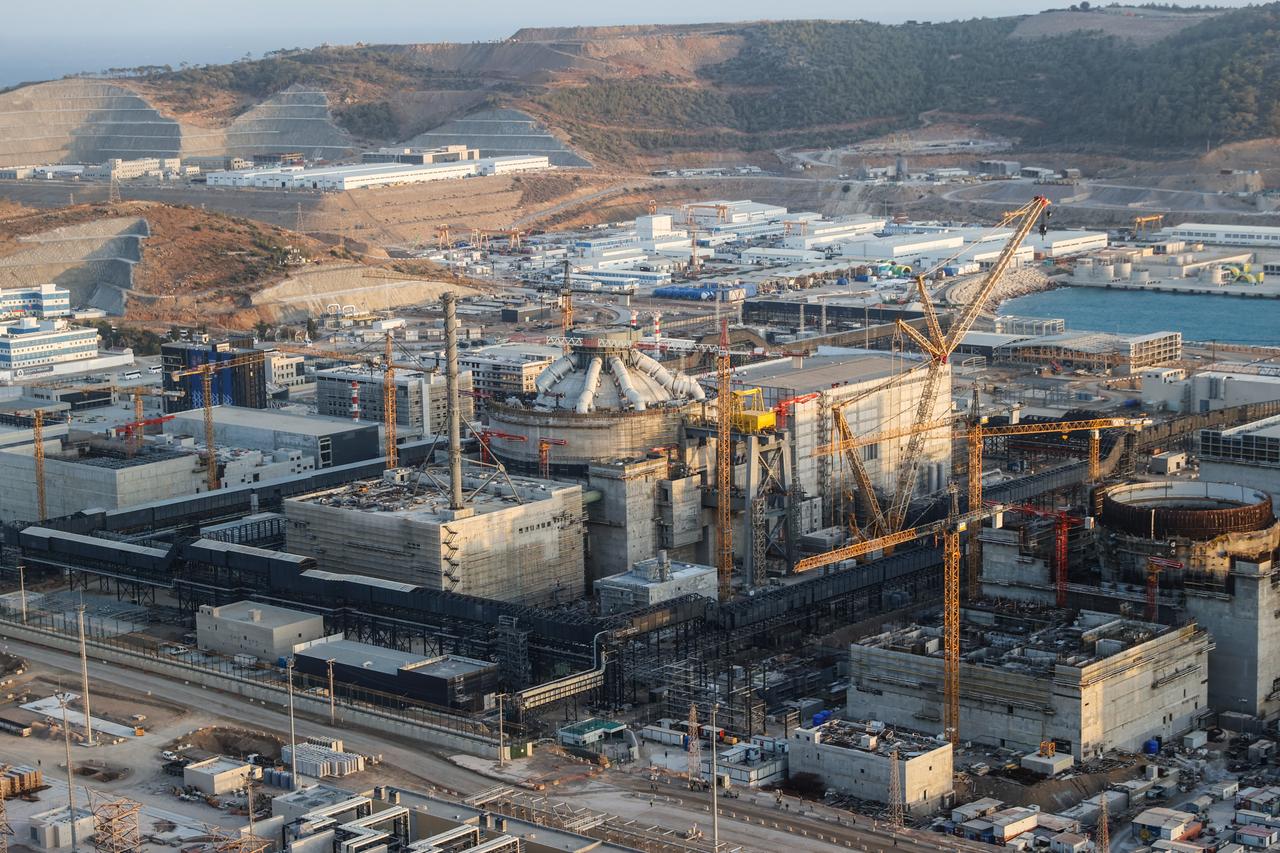
Türkiye plans to launch the first reactor of the Akkuyu Nuclear Power Plant (NPP) in 2026, according to Energy and Natural Resources Minister Alparslan Bayraktar.
The project, being built by Russia's Rosatom, has been delayed by supply problems with equipment from European countries.
Minister Bayraktar announced the timeline during a live broadcast on Ulke TV late Wednesday, stating that electricity generation from Akkuyu will begin in 2026.
Bayraktar described the Akkuyu project's history as a "70-year journey."
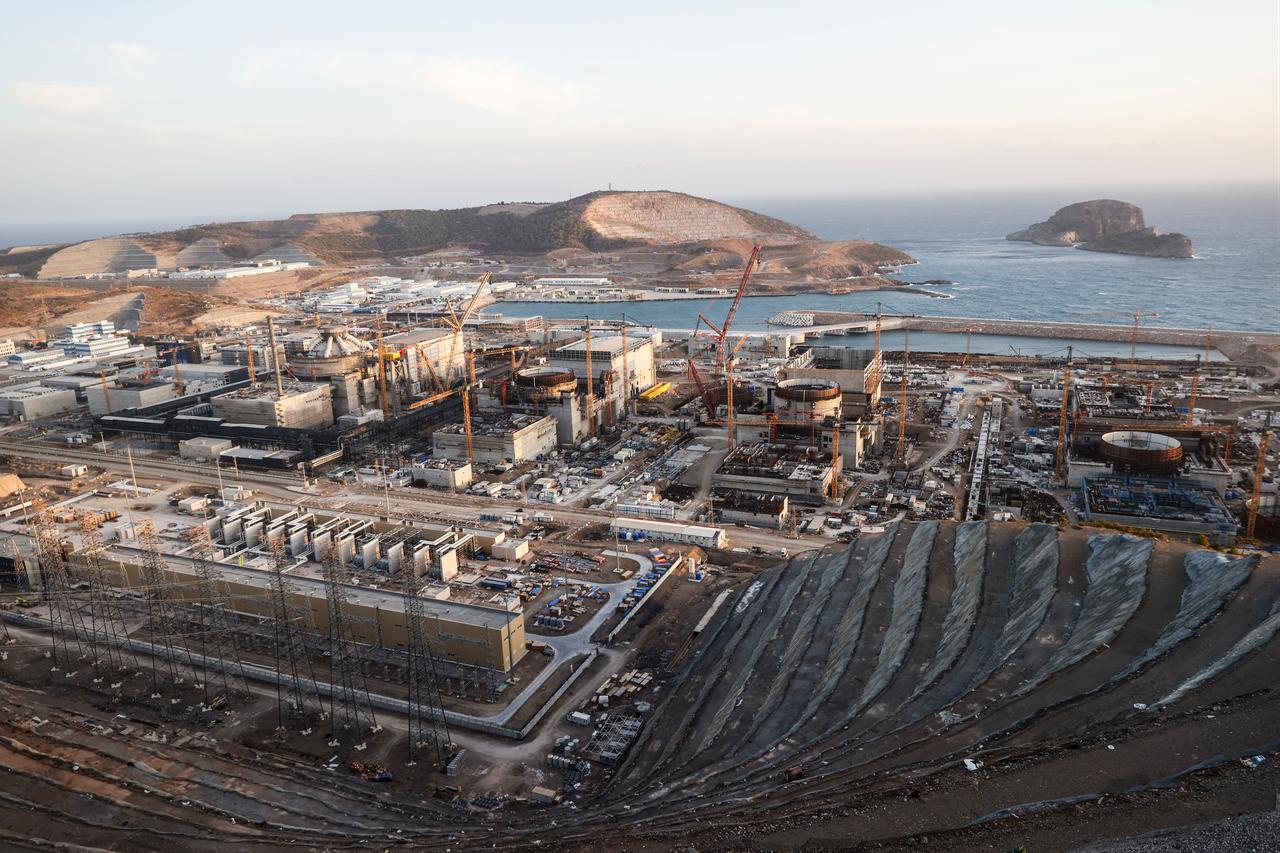
"We will generate electricity from Akkuyu from 2026 onwards. Akkuyu's story is a 70-year adventure. Türkiye began the nuclear process during the late Menderes period. Our main nuclear move was the agreement made with the Russian Federation in 2010 during the presidency of our president," Bayraktar stated.
"In 2015, there was the aircraft crisis, and afterward, in April 2018, Akkuyu reactor-1 received a construction license from our Nuclear Regulatory Authority. Although there were lost years in the eight-year process, there were technical works carried out in between.
There are also opponents, but let's not go into that. From 2018, in a seven-year process, electricity production should occur, which coincides with April 2026. We would be commissioning the first nuclear reactor in 100 years," he noted.
"We experienced the pandemic and faced sanctions, both overt and covert. We experienced a process where much already-paid equipment was held up in Europe, all of which caused project delays," Bayraktar added.
Bayraktar emphasized the importance of the facility: "We will provide 10% of Türkiye's energy needs through this reactor."
Minister Bayraktar explained the reasons for delays in project implementation. Equipment supply issues from European countries, pandemic-related impacts, and various sanctions were cited as contributing factors.
"There were sanctions we faced. We experienced a process where many already-paid equipment pieces were held up in Europe, all of which caused project delays," Bayraktar noted.
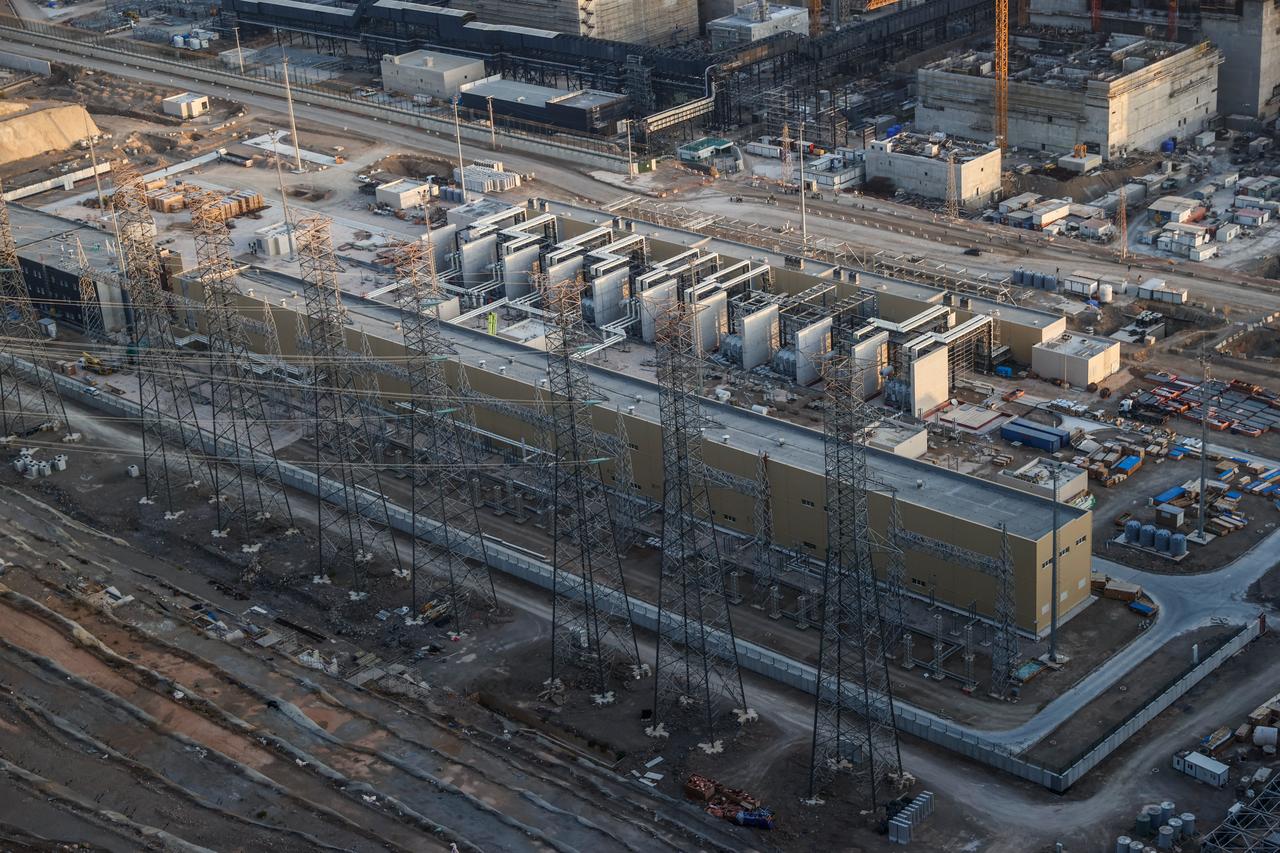
Looking beyond Akkuyu, Minister Bayraktar outlined an ambitious nuclear energy expansion strategy, with Bayraktar stating, "Türkiye needs 5,000 small modular reactors and 12 nuclear facilities by 2050. We are, hopefully, in the birth phase of small modular reactors now. We saw very good developments at Teknofest this year related to this topic."
"Türkiye should have 20,000 megawatts of nuclear power by 2050. Our goal is in this direction," he added.
Minister Bayraktar emphasized Türkiye's broader energy independence strategy, combining nuclear power with domestic oil and gas production.
"Türkiye has 60 billion dollars of tourism revenue. We have very strong industrial power. When we add natural resources to this, when we bring this trio together, Türkiye will reach a very different place. We will have new discoveries, and they will continue to happen," Bayraktar stated.
Bayraktar outlined Türkiye's energy development phases: "We define 2016 as the milestone. In the energy period of 2002-2016, we were in the first phase. In 2016, we transitioned to the second phase. We determined a strategy in our country in the Mediterranean and Black Sea to not leave any area unexplored on land, and we implemented this with our own resources."
"We also launched activities beyond Türkiye and began searching in Türkiye's close geography or places where its influence is high," he added.
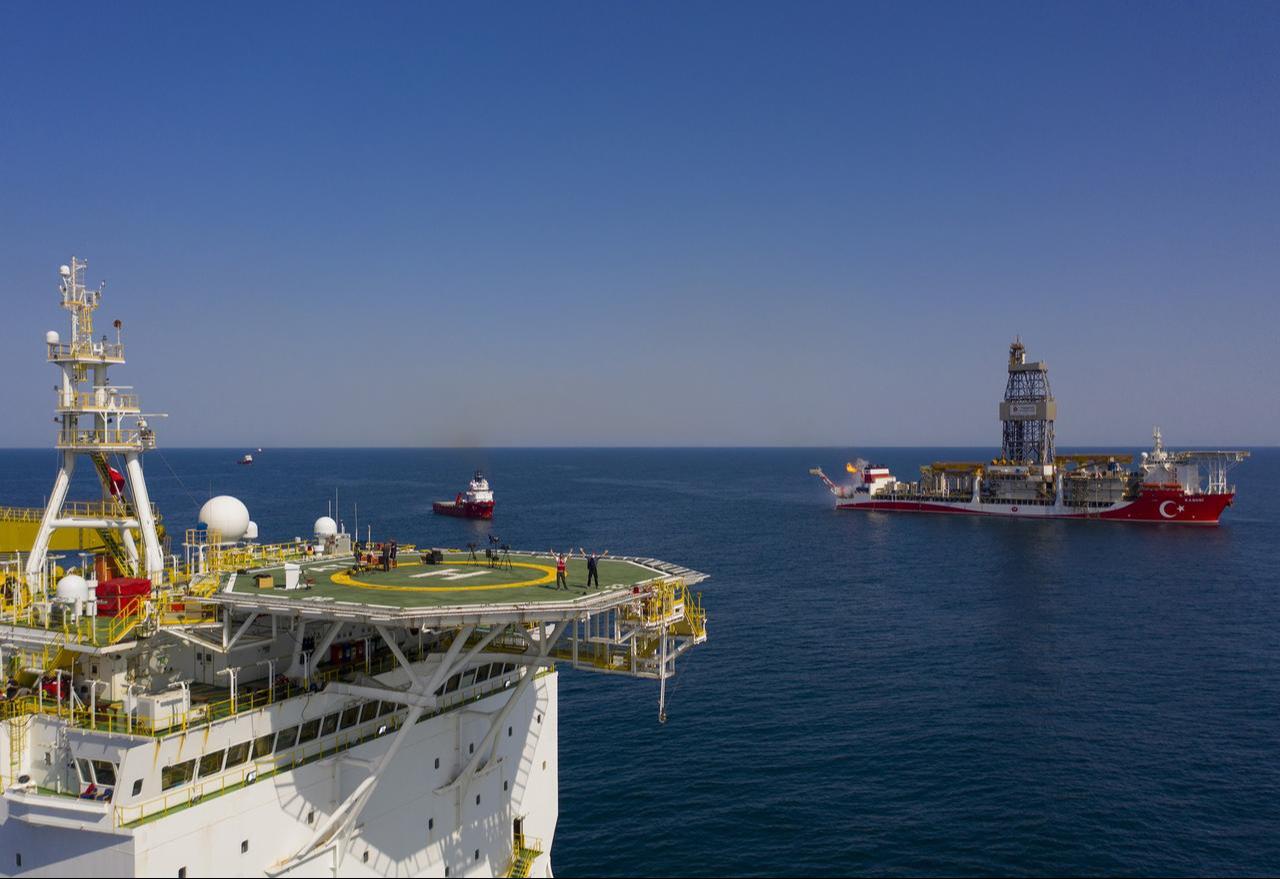
Minister Bayraktar highlighted the Gabar gas field in Sirnak as a success story of domestic production, with Bayraktar stating, "Gabar means $2 billion per year. We are not paying this money abroad—it stays in our pockets. It means job opportunities for our young people in Sirnak."
"Today, 3,500 young people work here, and now they have life dreams. Therefore, Gabar is where we see the fruits of our strategy," he added.
Bayraktar described the economic and social impact: "These new discoveries are happening. We saw a new reserve discovery recently. A $65 million new discovery has been made, but we are not mentioning these individually. We will make a collective discovery announcement, so our scale is growing."
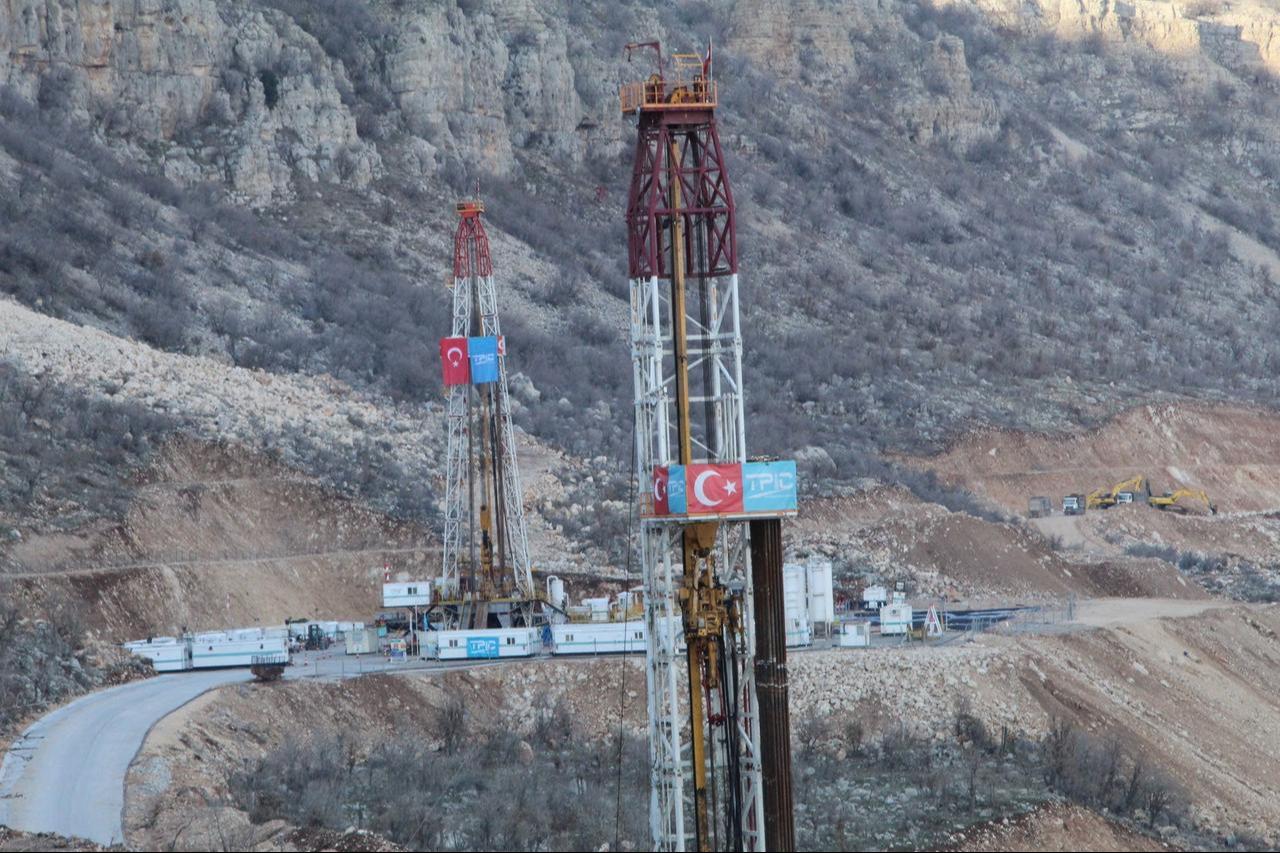
Minister Bayraktar announced new oil discoveries in Diyarbakir that could exceed Gabar's potential, with Bayraktar stating, "Türkiye is producing shale oil from four wells in Diyarbakir. I don't want to call it a new Gabar, but it could have even greater potential. It has game-changing characteristics. With these, we will end our dependence on foreign sources within our shelf. There are four fields identified north of Silav.
"We are talking about an area of 7,000 square kilometers. We will examine and test approximately 6-7% of this area and expand it to the entire Diyarbakir region," he noted.
Beyond Diyarbakir, Türkiye is engaged in energy production operations across a wider region, noting, "We are producing oil in Iraq, Azerbaijan, and Russia. We are soon interested in Kazakhstan. We have joint wells in Pakistan."
Bayraktar emphasized the region's strategic importance: "The geography we are in contains 60% of the world's oil and gas reserves. This is one of our most important dilemmas."
Minister Bayraktar outlined the scale of Türkiye's energy import burden and the drive toward energy independence.
"Türkiye paid $96.5 billion for energy imports in 2022. I am speaking about 2022. Remember the exit from the pandemic, a rapid growth process in the economy, and rising prices on commodity exchanges and energy exchanges worldwide—Türkiye's energy import bill was $96.5 billion. Türkiye imported approximately $40 billion of oil and oil products that year. Türkiye imported $38 billion of natural gas. And paid such a bill," Bayraktar stated.
"We are reducing this now somewhat. With measures taken and our domestic production, it has decreased to $60 billion. But we are still paying $60-70 billion in energy bills," he added.
"Therefore, our strategy is this: Türkiye must absolutely reduce its dependence on foreign energy, and in the process ahead, we will make Türkiye independent in energy—ending dependence on foreign sources," Bayraktar noted.
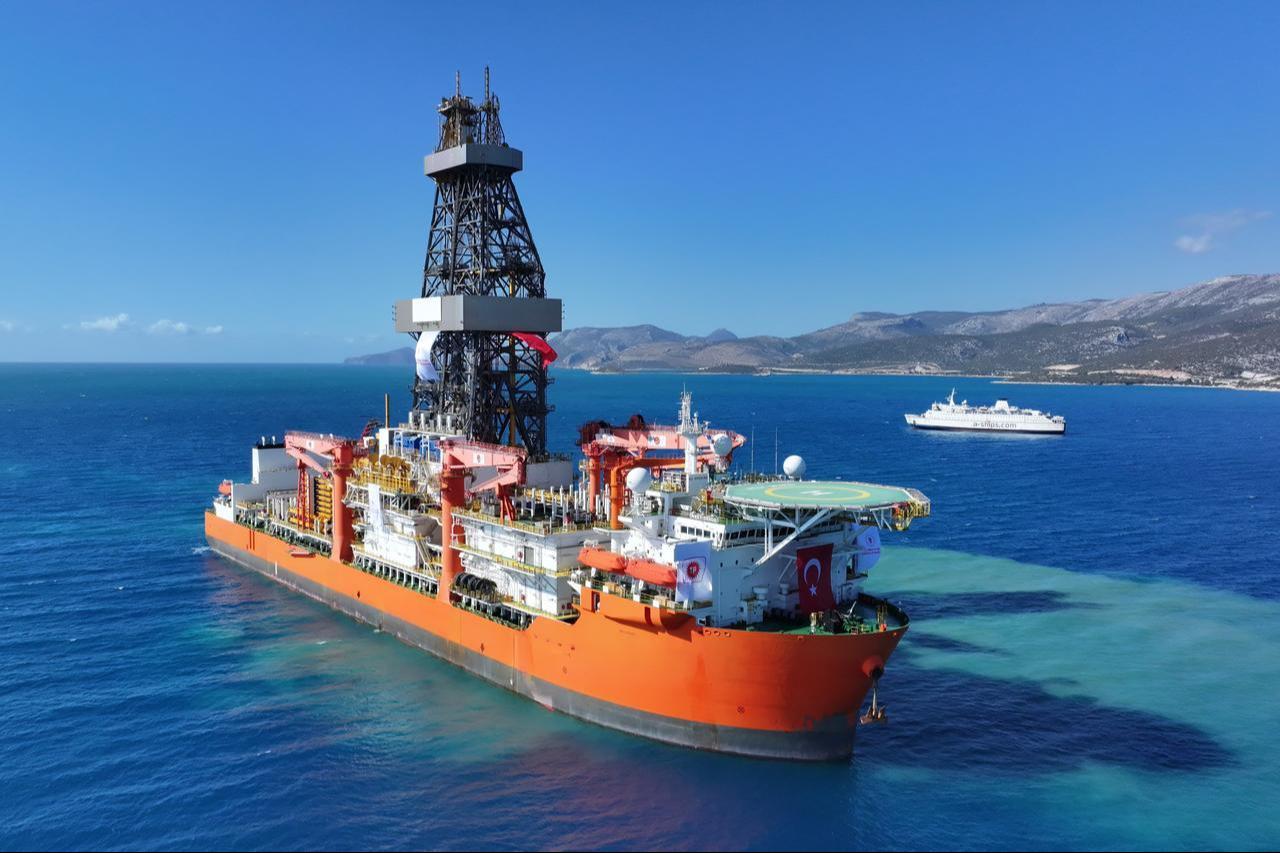
Minister Bayraktar defended Türkiye's liquefied natural gas agreement with the United States, describing it as a commercially sound decision. As Bayraktar stated, "There is nothing controversial about it. The opposition made noise about something, and the essence of it was our president's historic speech at the U.N. and his meeting at the White House—they expected negative outcomes and couldn't find the rent they hoped for. That's why they thought, What should we do? They brought up liquefied natural gas (LNG) and claimed we bought it expensively. Every number they mentioned is wrong."
Bayraktar compared pricing across global markets: "There are four markets where natural gas is priced in the world, and by far the cheapest is the U.S. market. After 2027, we are getting from the United States what becomes the cheapest gas after Turkmenistan."
"We signed dozens of agreements worth a total of $43 billion. We didn't sign these agreements by going from New York to Washington—there are months of work behind these signatures. Therefore, we made a gas agreement with America on very favorable terms. You don't need to produce something completely; if you find it cheaper elsewhere, you have the opportunity to sell it. The essence of it is a commercial and economic operation," he added.
Minister Bayraktar announced the commencement of natural gas imports from Turkmenistan, a long-standing strategic objective, stating, "Turkmen gas was our 27-year dream. On March 1, 2025, we began receiving this gas from Iran. We have reached a transfer of over 400 million cubic meters. Hopefully, we want to continue by increasing this."
"We aim to implement these through pipelines and receive gas at higher volumes," he added.
Also reflecting on recent discoveries, Minister Bayraktar described Türkiye's Mediterranean gas find as "historic."
"We conducted drilling south of Cyprus in the Mediterranean. You couldn't even imagine conducting drilling in these places. You need to have a strong navy behind you. We accomplished this. In the middle of the pandemic, we completed our drilling, and our president announced the largest natural gas discovery in the history of the Republic," Bayraktar stated.
Bayraktar lastly described the operational challenges overcome and concluded by stating, "To conduct drilling, you need strong naval backing. We accomplished this. We completed our drilling in the middle of the pandemic."